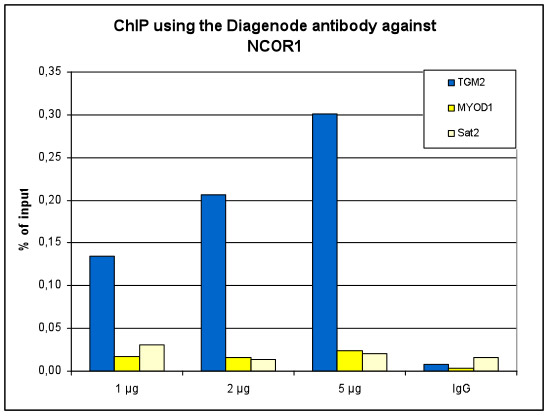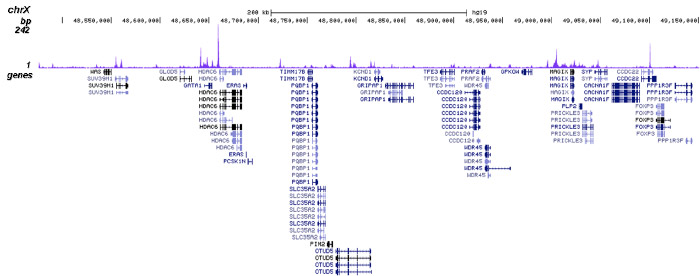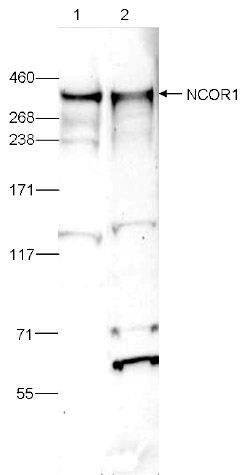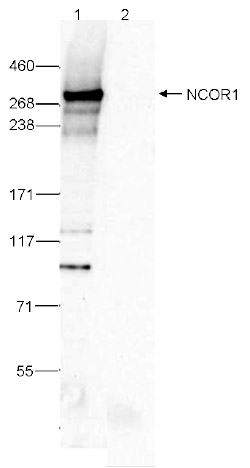NCOR1 (UniProtKB/Swiss-Prot entry O75376) mediates transcriptional repression of thyroid-hormone and retinoic-acid receptors by promoting chromatin condensation and preventing access of the transcription machinery. NCOR1 is part of a complex which may impede the access of basal transcription factors.by promoting histone deacetylation and the formation of repressive chromatin structures.








